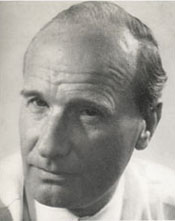If you study any philosophical treatise of our present era
you will with almost absolute certainty not encounter the concept,
and much less the expression, “the truth of all things.” This is no mere
accident. The generally prevailing philosophical thinking of our time has
no room at all for this concept; it is, as it were, “not provided for.”
It makes sense to speak of truth with regard to thoughts, ideas, statements,
opinions—but not with regard to things. Our judgments regarding reality
may be true (or false); but to label as “true” reality itself, the “things,”
appears to be rather meaningless, mere nonsense. Things are real, not “true”!
Looking at the historical development of this situation, we find that
there is much more to it than the simple fact of a certain concept or expression
not being used; we find not merely the “neutral” absence, as it were, of
a certain way of thinking. No, the nonuse and absence of the concept, “the
truth of all things,” is rather the result of a long process of biased
discrimination and suppression or, to use a less aggressive term: of elimination.
[Originally published as,
"Wahrheit der Dinge—ein verschollener Begriff” in Festschrift für
Leo Brandt (Köln-Opladen: Westdeutscher-Verlag, 1969). Translated
by Lothar Krauth.]
Things can be
known because they are created
The fundamental statement about the “truth of all things” is found in
St. Thomas [Aquinas]’ Questiones disputatae de veritate; it reads:
res
naturalis inter duos intellects constituta (est); whatever is real
in nature is placed between two knowing agents, namely – so the text continues
– between the intellectus divinus [God’s mind] and the intellectus
humanus [human mind].
These “coordinates” place all reality between the absolutely creative,
inventive knowledge of God and the imitating, “informed” knowledge of us
humans and thus present the total realm of reality as a structure of interwoven
original and reproduced conceptions.
Based on this twofold orientation of all things – so Thomas continues
his reasoning – the concept of the “truth of all things” is also twofold:
first, it means “thought by God”; second, it means “knowable to the human
mind.” The statement, “All things are true,” would therefore mean, on one
hand, that all things are known by God in the act of creation and, on the
other hand, that all things are by their nature accessible and comprehensible
to the human mind.
All things can be known by us because they spring from God’s thought.
Because they originated in God’s mind, things have not only their specific
essence in themselves and for themselves, but precisely because they originated
in God’s mind, things have as well an essence “for us.” All things are
intelligible, translucent, clear and open because they are created by God’s
thought, and for this reason they are essentially spirit related. The clarity
and lucidity that flows from God’s knowledge into things, together with
their very being (more correctly: as their very being) – this lucidity
alone makes all things knowable for the human mind. St. Thomas, in a commentary
on Scripture, remarks: “A thing has exactly as much light as it has reality.”
And in one of his late works, in his commentary on the Liber de causis,
we find a profound statement that expresses the same thought in almost
mystical terms: ipsa actualitas rei est quoddam lumen ipsius; “the
reality of a thing is itself its light”– and “reality” is understood here
as “being created”! It is precisely this “light” that makes a thing visible
to our eyes. In short: things can be known because they are created.
[Originally published in Unaustrinkbares Licht
(Munich: Kösel-Verlag, 1963). Translated by Lothar Krauth.]
Excerpts from Josef Pieper: An Anthology,
© 1989 Ignatius Press, San Francisco. Used with permission.

